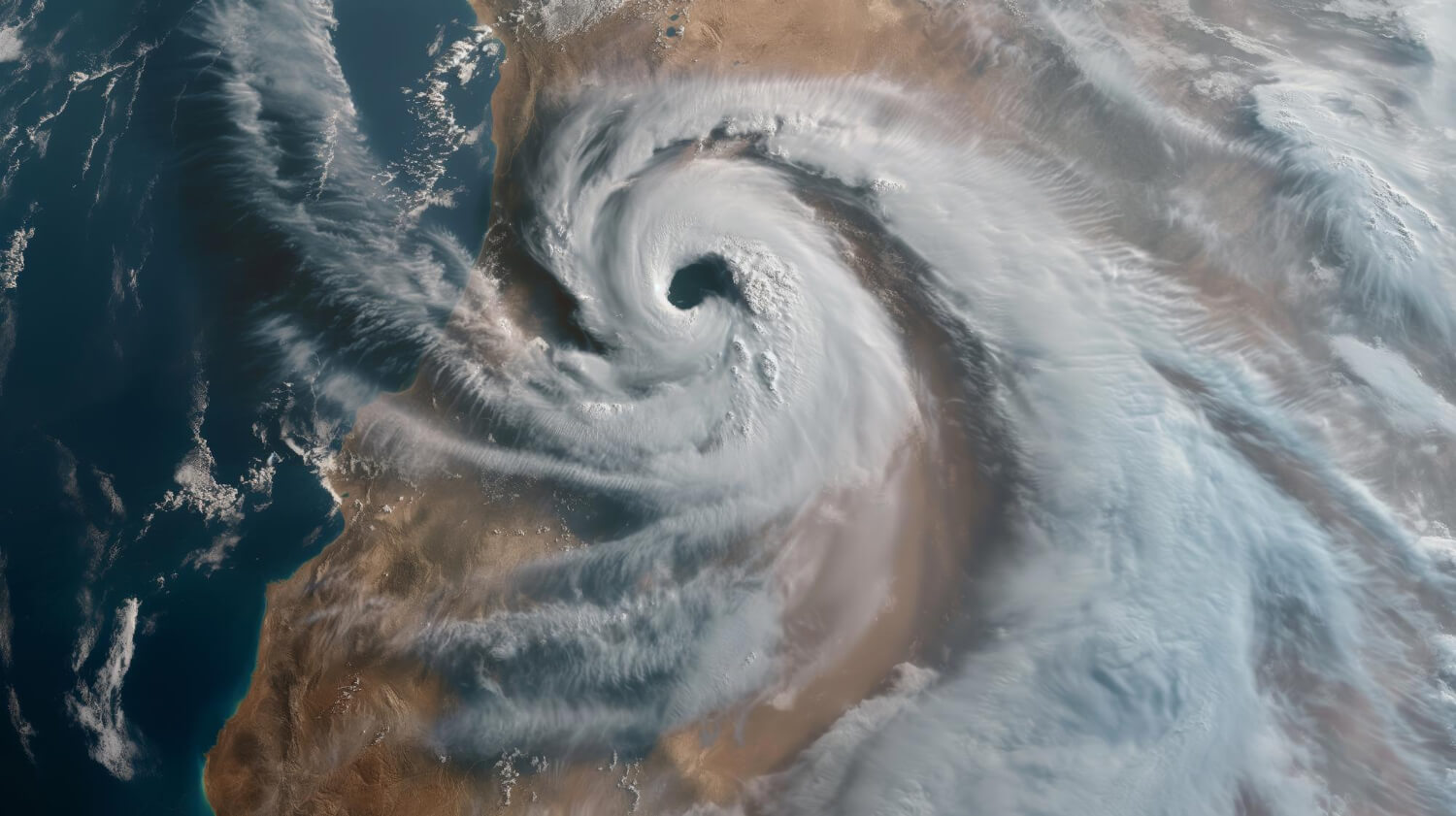
When hurricanes, floods, wildfires, or other catastrophic events strike, they often leave businesses damaged, jobs lost, and communities struggling to rebuild. Disaster Unemployment Assistance (DUA) provides critical financial relief for individuals whose livelihoods are disrupted by these natural disasters.
DUA supports workers not typically eligible for regular unemployment insurance, such as self-employed individuals or those without sufficient work history. By offering temporary financial aid, DUA helps stabilize individuals and families during uncertain times, allowing them to focus on recovery and rebuilding.
With two hurricanes recently carving paths of destruction across the Southeast, understanding DUA benefits and how they can support employees is more important than ever.
What Are DUA Benefits?
DUA provides weekly financial payments to individuals whose employment or self-employment has been disrupted by a natural disaster. Federally funded through the Federal Emergency Management Agency (FEMA) and administered by state unemployment agencies, DUA is a lifeline for those who do not qualify for regular unemployment insurance, such as the self-employed or individuals with insufficient work history. By offering temporary income support, DUA helps individuals recover and rebuild without the immediate burden of income loss, ensuring stability during challenging times.
Who Qualifies for DUA Benefits?
 To qualify for DUA benefits, an individual must meet at least one of these criteria:
To qualify for DUA benefits, an individual must meet at least one of these criteria:
- Applied for and exhausted regular unemployment benefits from any state, or not qualify for unemployment benefits.
- Worked or were self-employed, or were scheduled to begin work or self-employment in the disaster area.
- Cannot work or perform services due to physical damage to the workplace directly caused by the disaster.
- Establish that work or self-employment was the primary source of income.
- Cannot work or perform self-employment due to an injury directly caused by the disaster.
- Became the primary income source due to the death of the head of household.
How to Apply for DUA Benefits
When applying, individuals should clearly indicate that their job loss is associated with a declared disaster to expedite processing.
To apply for DUA, follow these steps:
- Check Eligibility
- Ensure your job or self-employment was disrupted due to a declared natural disaster.
- Confirm that you are not eligible for regular state unemployment insurance.
- Monitor Announcements
- Watch for public announcements about DUA availability in your area. Applications are only open when a federal disaster declaration includes DUA provisions.
- Contact Your State Unemployment Agency
- Visit your state’s unemployment agency website or contact their office directly for details on applying for DUA.
- Each state manages the application process, but DUA is federally funded through FEMA.
- Submit an Application
- File an initial claim through your state unemployment office. In most cases, this is done online or over the phone.
- Be sure to indicate that your job loss or business disruption is a result of a declared disaster.
- Provide Required Documentation
- Prepare to submit documentation such as:
- Proof of employment or self-employment at the time of the disaster.
- Proof of wages or income (e.g., tax returns, pay stubs, contracts).
- Documentation showing the disaster’s impact on your ability to work.
- Deadlines to submit documentation vary but are typically within 21 days of filing your claim.
- Prepare to submit documentation such as:
- Meet Application Deadlines
- DUA applications have strict deadlines, typically within 30 days from the announcement of disaster assistance availability. Check with your state agency for exact dates.
- Track and Follow Up
- After submitting your claim, monitor its status and provide additional information if requested.
- You may need to certify eligibility weekly to continue receiving benefits.
How are Benefits Received?
DUA benefits are managed by individual state workforce agencies but funded by the FEMA. Application instructions and deadlines vary by state and by the specific disaster. Individuals must apply for—and be denied—regular unemployment benefits before qualifying for DUA. States may also temporarily waive certain UI requirements, such as the need to actively seek work, given the extraordinary circumstances.
Regular Benefits After a Declared Disaster
Regular unemployment benefits may also apply to individuals impacted by a declared disaster. These benefits are available to workers who lose jobs or experience a reduction in work hours through no fault of their own and meet traditional eligibility criteria, such as:
- Having sufficient work history and earnings during the base period.
- Being able, available, and actively seeking work.
After a disaster declaration, qualifying individuals may receive weekly benefit payments based on state-specific amounts and duration. Those applying for benefits should note that their job loss is linked to a declared disaster to speed up the claim.
In certain cases, individuals receiving regular UI benefits may transition to DUA if they exhaust their regular benefits.
About Us
For more than 40 years, 501(c) Services has been a leader in offering solutions for unemployment costs, claims management, and HR support to nonprofit organizations. Two of our most popular programs are the 501(c) Agencies Trust and 501(c) HR Services. We understand the importance of compliance and accuracy and are committed to providing our clients with customized plans that fit their needs.
Contact us today to see if your organization could benefit from our services.
Are you already working with us and need assistance with an HR or unemployment issue? Contact us here.
The information contained in this article is not a substitute for legal advice or counsel and has been pulled from multiple sources. Some information was provided by our friend, Darby Gibson, Client Marketing & Insights Specialist, at Thomas & Company.
Images by Wayinnowhere3 and Rawpixel.com




